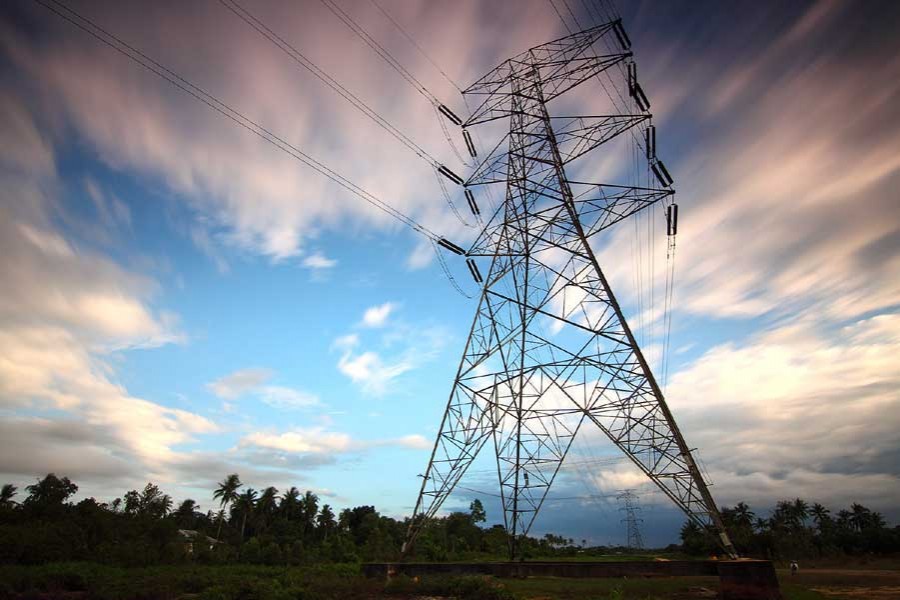Responding to the suggestions of energy experts, Bangladesh is finally moving towards formulating an integrated energy and power sector master plan with a focus on the "3E+S" concept.
“We’ll pursue the "3E+S" concept of ensuring "Energy Security," "Economic Efficiency," and "Environment" while focusing on "Safety," said the Japan International Cooperation Agency (JICA) in an official statement, adding, “In view of the need for a long-term low-carbon energy policy, we will support the formulation of the integrated energy and power master plan.”
Citing official sources UNB reported that the Tokyo-based consulting firm Institute of Energy Economics, Japan (IEEJ), has started work following an agreement the Bangladesh government signed with JICA on March 15 this year in this regard.
Official sources said JICA will complete the formulation of the integrated energy and power master plan by December 2022 under a completion contract of a timeframe of 30 months.
JICA has been funding the entire project through its grant under a deal with the Ministry of Power, Energy and Mineral Resources (MPEMR).
It had provided financial and technical support for formulating all the previous power system master plans (PSMPs) until 2016.
According to official sources at the MPEMR, for decades, Bangladesh had prepared two separate master plans—one for the energy sector and another for the power sector—where there had been many missing links and lack of coordination resulting in an imbalance between the energy and power sector’s growth.
“But for the first time, we’re going to formulate an integrated master plan putting equal emphasis on the development of both the sectors in order to support the current robust economic growth,” said Mohammad Hossain, Director General of Power Cell.
In the context of imbalanced growth in power and energy sectors in the last one and a half decades, the country’s energy experts have long been urging the government to formulate an integrated plan to bring coordination among the two.
In the last 12-13 years, the country’s power sector witnessed robust growth with increased power generation from 4,500 MW to 21,000 MW while growth in the energy sector remained non-significant as a new discovery was not made for gas exploration nor low cost primary fuel was ensured.
Officials said Bangladesh has to now import a significant amount of primary fuel, especially liquid petroleum, liquefied natural gas (LNG) and coal—to meet the demand of the power and industry sector.
Welcoming the move for an integrated master plan, eminent energy expert Dr Tamim said this initiative will definitely bring a positive impact on ensuring low cost primary energy for affordable power generation.
He said many power plants have to face uncertainty in their operation because of a lack of primary fuel supply guarantee.
“I hope such a plan will address the primary fuel issue and then give go ahead to set up a new power plant”, he told UNB.
Tamim opined that the plan should be on a 3-year short term, 5-year mid-term and 10-year long term basis where a focus should be on the maximisation of renewable energy and import of energy from regional countries.
Official sources said the JICA consulting firm will work through a joint coordination committee comprising energy division and power division where both energy and power secretaries will hold the position of co-chairs.
In addition, a number of working groups will be working with the JICA team to formulate the integrated plan.
Official sources said the JICA consultant will study the country’s 8th Five-year Development Plan, gas sector master plan 2017, and revise the power system master plant 2016 and other relevant policies/plans.
It will prepare the prospects for economic development and energy demand forecast by 2050 with a focus on energy efficiency and conservation.
A calculation and analysis on financial cost and benefit for implementing different scenario-based plans will be another task of the plan giving an overview of the supply and demand for the timeframe midpoints in 2030, 2041 and 2050, said the officials.
In the existing power system master plan (PSMP) 2016, about 60,000 MW of power generation was targeted by 2041 in which primary fuel mix set at 70 per cent coming from coal and gas while the remaining 30 per cent will be covered by liquid fuel, renewable, nuclear and other sources.
Currently, the country's power generation capacity is about 21,395 MW, of which about 50 per cent of power (10,869 MW) is being generated from gas while less than 10 per cent (1,768 MW) is from coal, about 30 per cent of power is generated from imported liquid fuel.

- Sunday, 17 November 2024 |
- Today's FE |
- e-Paper |
- Beta Website

